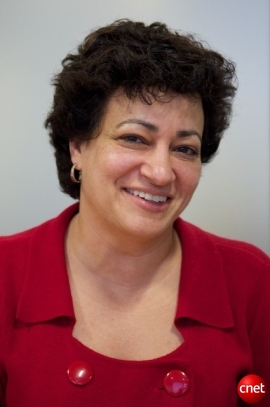Canonical, Ubuntu Linux's parent company, reorganizes

Ubuntu is a popular Linux with users, but it hasn't made as many in-roads in the business market as it would like. To address that Canonical, Ubuntu's parent company, CEO Jane Silber has announced a major company reorganization.
Silber wrote, "Canonical has grown dramatically over the last several years. This growth is driven by increasing demand for our services and products by end users, businesses and partners, and by investment to deliver our part of the future of free software. As Ubuntu's position in the marketplace and as the leading free software platform has matured, we have needed change the way we align our teams internally. The purpose of these changes is to ensure greater efficiency for us, for the customers we serve and for the partners with whom we go to market."
These changes also, it should be noted, come after Canonical's CTO, Matt Zimmerman, left the firm in May. In addition, the company's Chief Operating Officer (COO), Matt Asay left Canonical late last year. Canonical was due for a major reorganization.
"Historically," Silber explained, "we have had three business units geared to match the customers and established ecosystems which Canonical, as a start up, needed to penetrate: enterprises who want services in support of Ubuntu deployments (Corporate Services), industry players who want to deploy and distribute Ubuntu on their machines (OEM Services), and end users who want web-based content and services on top of the free platform (Online Services)."
That was then. This is now. Today, Canonical is finding that many of its enterprise customers are also buying hardware at the same time they're switching over to Ubuntu. Therefore, since "our OEM partners and their corporate sales teams often introduce Ubuntu and Canonical to their customers. And of course at times OEMs are also our corporate customers, as the recent announcement of the HP Cloud based on Ubuntu demonstrates … our internal separation of sales and delivery of services to OEM and Corporate users began to make less sense."
Silber continued, "Therefore in order to better meet our customers' and partners' needs, we have brought together the sales and sales support teams of OEM and Corporate Services into a single Sales and Business Development team led by Chris Kenyon. Chris has been with the company for five years and has led many of our largest sales, as well as guiding our most significant partnerships."
Customer and partners support will now be handled by "a single Professional and Engineering Services team led by Jon Melamut. Steve George, formerly Canonical's VP of Business Development, "has added Product Management to his portfolio and now leads our Communications and Product Management teams."
At the same time, Canonical is consolidating the Ubuntu Software Center--Ubuntu's version of an app. store--work into our Online Services group under Cristian Parrino. Before this, "the Software Center was built and operated by a virtual team across the company, but we believe that the consolidated team will be able to respond more effectively to the extraordinary growth and interest in this outlet for application developers has generated."
Some things remain the same. Ubuntu founder Mark Shuttleworth continues to lead overall Product Strategy and Rick Spencer will continue to lead the Ubuntu Engineering team. The entire team will be at the Ubuntu Developer Summit next week in Orlando, Florida to talk to Ubuntu's fans, customers, and partners.
Speaking as someone's who been watching Canonical and Ubuntu since day one, I think these are smart moves. Canonical has made it clear that they want to be a business player. With Red Hat already owning the Linux server market, they needed to refocus not just their technology but their business organization as well. As Asay tweeted, "This is such a welcome change. Centralizing functions like sales+PS will help a lot." He's right. It will.
Related Stories:
Ubuntu Linux will try for the business desktop
Ubuntu Linux 11.10: Unity comes of age (Review)
Ubuntu Linux heads to the clouds
